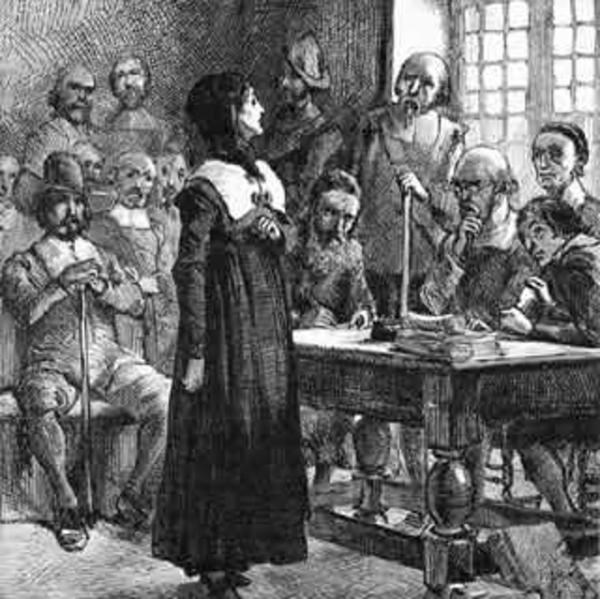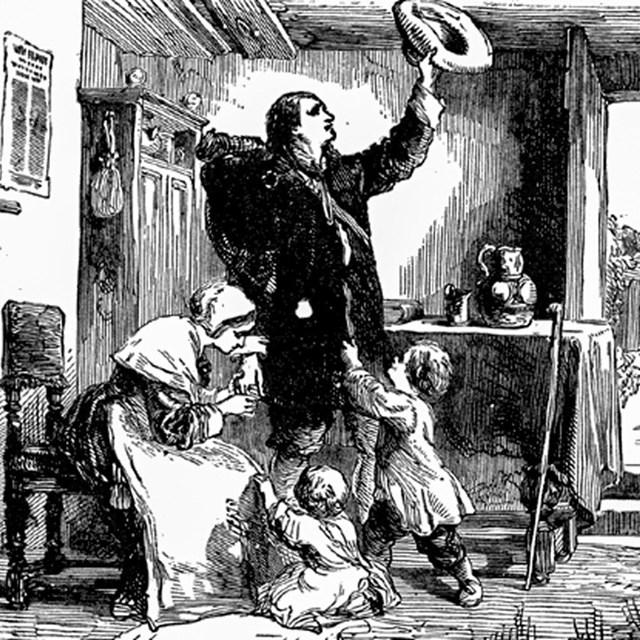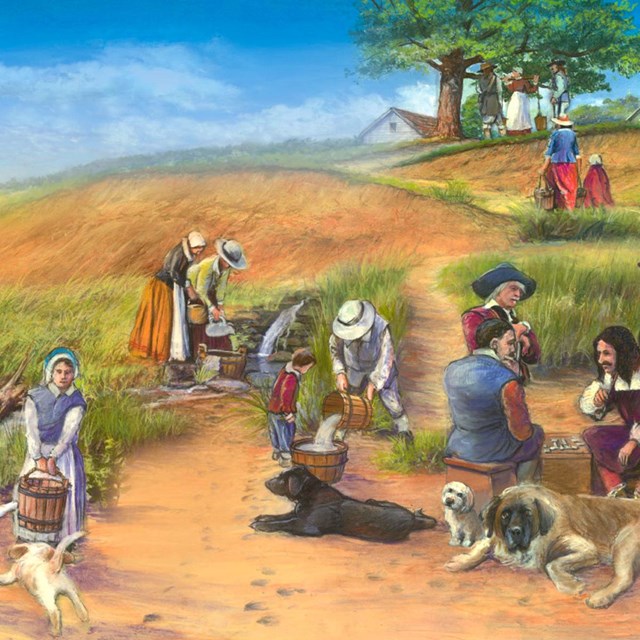
Anne was born in England in 1591. Her father was a Puritan minister, Francis Marbury. He was jailed in 1578 for criticizing the bishops. Anne was especially bright, and she quickly absorbed her father’s ideas on questioning religious authority. She married William Hutchinson in 1612. Anne and her family were followers of John Cotton. Cotton was a charismatic minister in the underground Puritan movement in England. When he became a minister of a church in Boston, the Hutchinson family followed him to the Massachusetts Bay Colony. In Boston, Anne hosted meetings in which women gathered to discuss church services. Anne knew a lot about Scripture. This enabled her to easily interpret the reverend's sermon and help others to understand, too. At first, Anne had the approval of the Boston civic and religious leaders. However, many saw Anne as a menace, especially when her teachings started to include her own opinions. Governor John Winthrop and other men believed that women should be meek and obedient and leave religious philosophy to men. Anne disagreed. She believed that God spoke directly to people, even women, without the intervention of clergy. In November 1637, Governor Winthrop forced Anne to appear before the General Court. The Court charged her for leading Scripture meetings in a way “not comely or fitting” for a woman and for trying to usurp the powers of the ministers. Anne vigorously defended herself using quotes from the Bible to deflect all of Winthrop’s arguments. In the end, she was convicted and put under house arrest. In 1638, she was summoned back to Boston to appear before her church for another trial. She refused to admit to her supposed errors, and she was banished from Massachusetts Bay. She fled to Providence, a place where she was assured liberty of conscience. Roger Williams helped the family buy land from the Narragansett. The Hutchinsons and many of their followers began a new settlement on Aquidneck Island. One of their first written rules in this new town of Portsmouth was “No person within said colony, at any time hereafter, shall be in any wise molested, punished, disquieted or called into question on matter of religion – so long as he keeps the peace.” Learn More
|
Last updated: January 7, 2023


